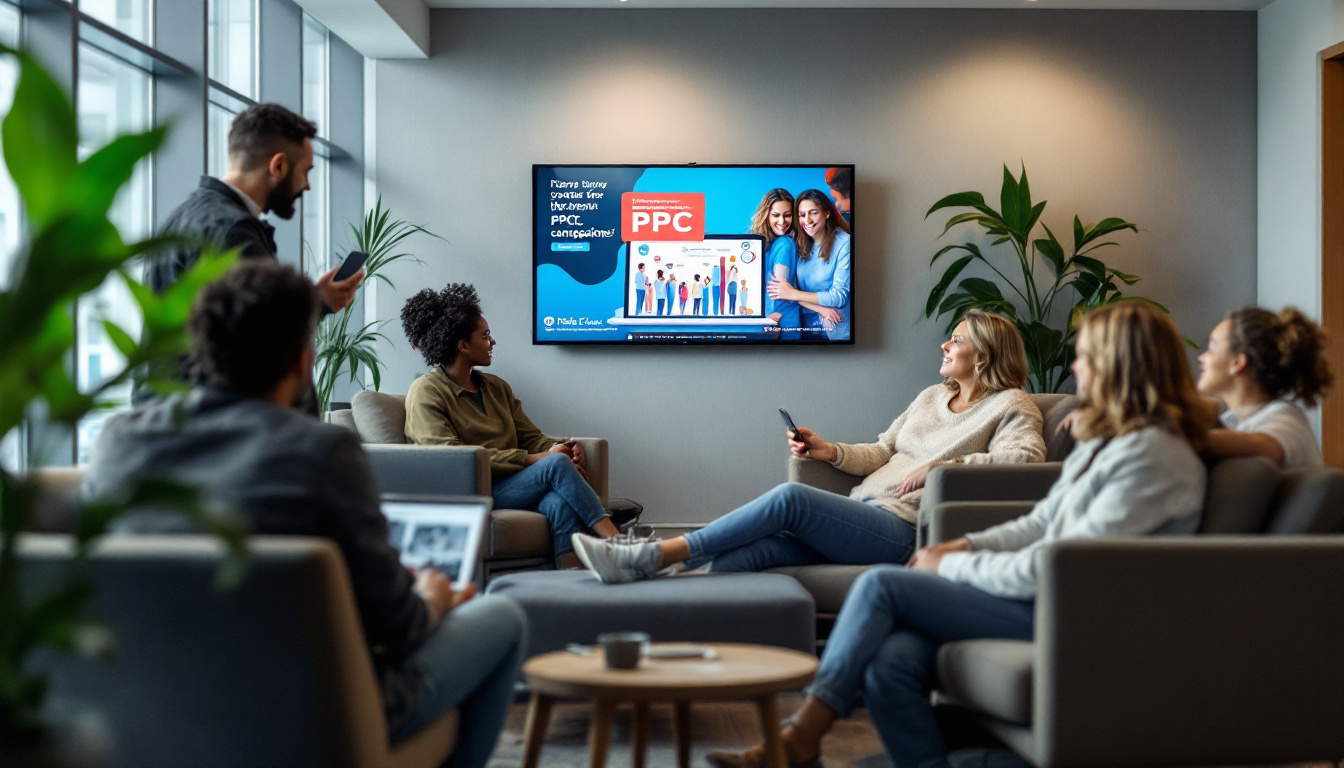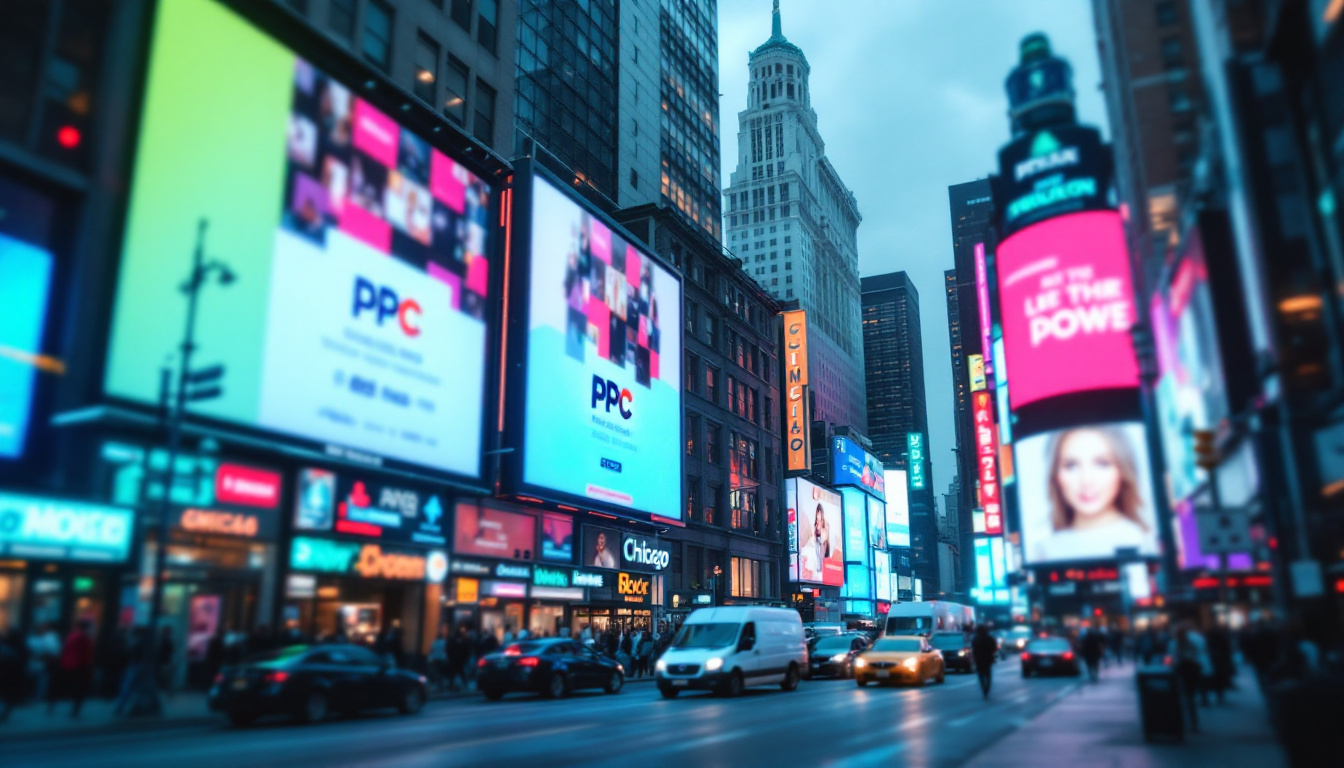10 Things Every Chicago, IL Business Should Know About PPC

Pay-Per-Click (PPC) advertising has become a staple for many businesses looking to increase their online presence and drive sales. For companies in vibrant cities like Chicago, where competition can be fierce, understanding the nuances of PPC is crucial. This article outlines ten essential points every Chicago business should consider when venturing into PPC marketing.
Why PPC is essential for Chicago, IL businesses
PPC advertising allows businesses to reach potential customers at the exact moment they are searching for relevant products or services. In a bustling city like Chicago, this immediacy can differentiate you from the competition. The dense urban environment and diverse population mean that targeting specific demographics through PPC can yield high returns. With a city that boasts a rich tapestry of cultures and interests, businesses can leverage PPC to tailor their messages to resonate with various community segments, from the vibrant arts scene in Wicker Park to the bustling financial district in the Loop.

Moreover, PPC campaigns can be tailored to suit the unique needs of local audiences. Utilizing location-based targeting, Chicago businesses can ensure that their ads only reach users in specific neighborhoods or areas. This hyper-targeting capability maximizes the effectiveness of ad spends and improves conversion rates. For instance, a local restaurant can focus its ads on users searching for dining options in Lincoln Park, while a boutique can target shoppers in the trendy areas of River North. This level of precision not only enhances engagement but also fosters a sense of community connection.
Immediate Visibility
One of the most significant advantages of PPC is the quick visibility it provides. Unlike organic methods, which can take months to show results, a well-designed PPC campaign can make your business appear on the first page of search engines in a matter of hours. This is particularly vital in a competitive marketplace like Chicago, where businesses vie for attention amidst a sea of options. The immediacy of PPC means that seasonal promotions or new product launches can be effectively highlighted to the right audience without delay.
Furthermore, PPC allows for immediate feedback, enabling businesses to analyze data and adjust their strategies almost in real time. The ability to make swift changes can help maintain or improve ad performance steadily. For example, if a particular ad copy is underperforming, businesses can quickly pivot to test new headlines or images, ensuring that they are always presenting the most compelling offers to potential customers. This agility is crucial in a fast-paced market where consumer preferences can shift rapidly.
Cost-Effective Solutions
Contrary to popular belief, PPC is not just for big corporations. Chicago businesses, regardless of size, can benefit from the cost-effective nature of PPC advertising. Budget control is one of the primary benefits, allowing businesses to set daily or campaign budgets that align with their financial capacities. This flexibility means that even small startups can compete with larger firms by carefully managing their PPC strategies and focusing on high-impact keywords that drive local traffic.
Additionally, PPC offers a higher return on investment compared to traditional advertising channels. With proper optimization, businesses often find that each dollar spent leads to measurable increases in website traffic and sales. The ability to track conversions and customer actions allows Chicago businesses to refine their approaches continuously. For instance, a local service provider can analyze which keywords lead to the most bookings, enabling them to allocate resources more effectively and maximize their advertising budget. This data-driven approach not only enhances profitability but also fosters a culture of continuous improvement within the organization.
Common misconceptions about PPC
Despite the advantages, many Chicago businesses hold misconceptions about PPC advertising that can hinder their growth. Understanding these myths is crucial for developing effective PPC strategies.
One common myth is that PPC is only effective for large companies. In reality, small to medium-sized businesses can leverage PPC successfully, utilizing specific targeting options to reach desired customers effectively. Local businesses can thrive through strategic keyword selection and personalized ad messages.
PPC is Too Complicated
Many business owners believe that PPC is too complex to manage without professional help. While expert guidance may be beneficial, numerous user-friendly platforms simplify campaign management. With adequate research and practice, almost anyone can create a successful PPC campaign.
Moreover, various educational resources are available online to help beginners understand PPC basics. Investing time in learning these systems can lead to long-term savings and better results. Additionally, many platforms offer tutorials and customer support to assist users in navigating the intricacies of PPC. This democratization of knowledge means that even those without a marketing background can become proficient in managing their campaigns.
Ads are the Same Everywhere
Some businesses fall into the trap of using generic ad copy or visuals, assuming they will be effective across all demographics. In reality, PPC campaigns should be tailored to target specific audiences. For Chicago businesses, crafting localized ads that resonate with the city's diverse population can significantly enhance engagement and conversion rates.
Utilizing regional references, city landmarks, or community events in ad content can create a sense of familiarity and relevance among potential customers. Moreover, incorporating local dialects or cultural nuances can further bridge the gap between the business and its audience. This personalized approach not only boosts click-through rates but also fosters a deeper connection with the community, encouraging brand loyalty and repeat business.
How to allocate your PPC budget effectively
Proper budget allocation is critical in managing a successful PPC campaign. In a city like Chicago, where advertising costs can vary widely, strategic planning is essential. The competitive landscape means that businesses must not only be aware of their own budgets but also keep an eye on their competitors' spending habits and market trends. Understanding the dynamics of the local market can provide insights that help shape your PPC strategy, ensuring that your ads stand out amidst the noise.
Businesses should start by defining their overall marketing budget and determining how much they are willing to allocate to PPC. A common rule of thumb is to start with 5-10% of total revenue for PPC, adjusting based on performance metrics over time. However, it’s important to consider seasonal fluctuations in your industry. For example, if you’re in retail, you might want to increase your PPC budget during the holiday season when consumer spending peaks. This kind of flexibility can lead to more effective campaigns and better returns on your investment.
Prioritize High-Value Keywords
Investing in high-value keywords—those that have a higher likelihood of conversion—is a crucial step in budget allocation. Conducting keyword research to identify terms that not only have high search volumes but also relevance to your business can lead to better results in PPC campaigns. Tools like Google Keyword Planner or SEMrush can help you uncover valuable keywords that your competitors might be overlooking, giving you a competitive edge.
Additionally, ongoing optimization is vital. Continuously monitoring which keywords are generating traffic and fostering conversions can help reallocating budget to maximize ROI. It’s also beneficial to keep an eye on negative keywords—terms that are irrelevant to your business. By excluding these from your campaigns, you can prevent wasted spend and ensure that your budget is focused on the most promising opportunities.
Test and Optimize
Consider allocating a portion of your budget to testing different ad formats, keywords, and audience targeting strategies. A/B testing can provide invaluable insights into what works best for your business and can significantly enhance your PPC strategy over time. For instance, experimenting with different headlines, call-to-action phrases, or even ad extensions can reveal what resonates most with your audience, allowing you to refine your approach.
By optimizing campaigns based on data, you can fine-tune your spending for optimal results, which is particularly beneficial in a bustling market like Chicago. Moreover, leveraging advanced targeting options, such as demographic or geographic targeting, can help you reach the right audience more effectively. This means that not only can you allocate your budget wisely, but you can also ensure that your ads are being seen by those most likely to convert, ultimately driving better performance and higher returns on your investment.
The role of keywords in PPC success
Keywords are the backbone of any successful PPC campaign. For Chicago businesses, choosing the right keywords not only improves visibility but also drives qualified traffic.
Understanding the difference between broad match, phrase match, and exact match keywords can significantly impact campaign performance. Broad match keywords grab a wider audience but may not always lead to high conversions, while exact match targets very specific searches that are more likely to convert.
Long-Tail Keywords
Utilizing long-tail keywords—phrases that are longer and more specific—can be particularly effective in a city like Chicago. These keywords might have lower search volumes, but they often lead to higher conversion rates due to their targeted nature.
For example, instead of a general keyword like "pizza," a long-tail keyword such as "deep-dish pizza in downtown Chicago" can connect businesses with consumers who are ready to make a purchase.
Ongoing Keyword Research
Keyword trends can change over time, making ongoing keyword research essential for PPC success. Regularly updating your keyword list can ensure your ads remain relevant and competitive, especially in a fast-paced market like Chicago's.
Using analytics tools to track the effectiveness of keywords can provide insights into which terms need adjustment, allowing businesses to stay ahead of the competition.
How PPC fits into your overall marketing strategy
PPC should not operate in isolation; it’s essential for Chicago businesses to integrate PPC advertising into their overall marketing strategy. This cohesive approach can greatly amplify the effectiveness of both organic and paid marketing efforts.

Combining PPC with SEO efforts can provide maximum visibility. While PPC is effective for immediate results, SEO supports sustainable organic traffic growth in the long run. Leveraging both can create a balanced marketing strategy for businesses.
Utilizing Social Media
Incorporating social media marketing with PPC can also enhance brand visibility. Ads on platforms like Facebook or Instagram, which can directly complement PPC campaigns, can increase engagement and awareness.
Moreover, retargeting efforts through social media can effectively draw previous website visitors back, creating more conversion opportunities.
Data-Driven Decisions
Finally, it’s important to use data collected from both PPC campaigns and other marketing strategies to drive future decisions. Looking at how users interact with both paid ads and organic content can provide a comprehensive understanding of the customer journey.
Regular analysis helps Chicago businesses continue to refine their strategies, ensuring they remain competitive in an ever-changing market landscape.
By understanding these ten essential aspects of PPC advertising, Chicago businesses can make informed decisions that lead to effective and impactful advertising campaigns.

As a Google Ads expert, I bring proven expertise in optimizing advertising campaigns to maximize ROI.
I specialize in sharing advanced strategies and targeted tips to refine Google Ads campaign management.
Committed to staying ahead of the latest trends and algorithms, I ensure that my clients receive cutting-edge solutions.
My passion for digital marketing and my ability to interpret data for strategic insights enable me to offer high-level consulting that aims to exceed expectations.























